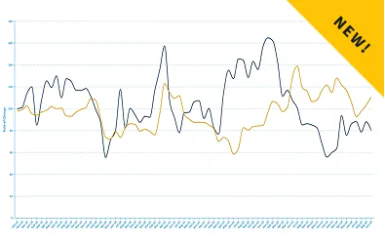Travel Nurses To The Rescue – In Their RVs
There has long been a shortage of nurses in America; prior to COVID, there was an estimated need to fill 200,000 positions. Counterintuitively, the demand decreased during the first wave of COVID when hospitals postponed nonessential surgeries and reduced their number of beds. But more recently, as the pandemic has dragged on, demand has grown by 35% and is expected to continue climbing. Suspected causes include the aging of the workforce, staff burnout, low pay, and declining morale.
To fill the gap, hospitals have been forced to turn to temporary travel nurses, often paying triple the hourly rate or more for a market of roving nurses that is estimated to reach 100,000 this year. According to the nurse recruitment industry (which is enjoying unprecedented capital investment), there are currently close to 40,000 open “assignments” for travel nurses around the country.
Responding to this need are travel nurses who live at home, but who contract themselves out to different area hospitals for the typical 13-week assignments. But increasingly, travel nurses are packing up and venturing much farther away in their RVs. Based on their very active social media groups (Facebook’s “Adventures in RV Travel Nursing/Healthcare” has over 23,000 members), more and more travel nurses are combining their nursing and travel passions to, as one nurse describes it, drive her “beach house, mountain cabin, and desert dwelling” to jobs all across the country.
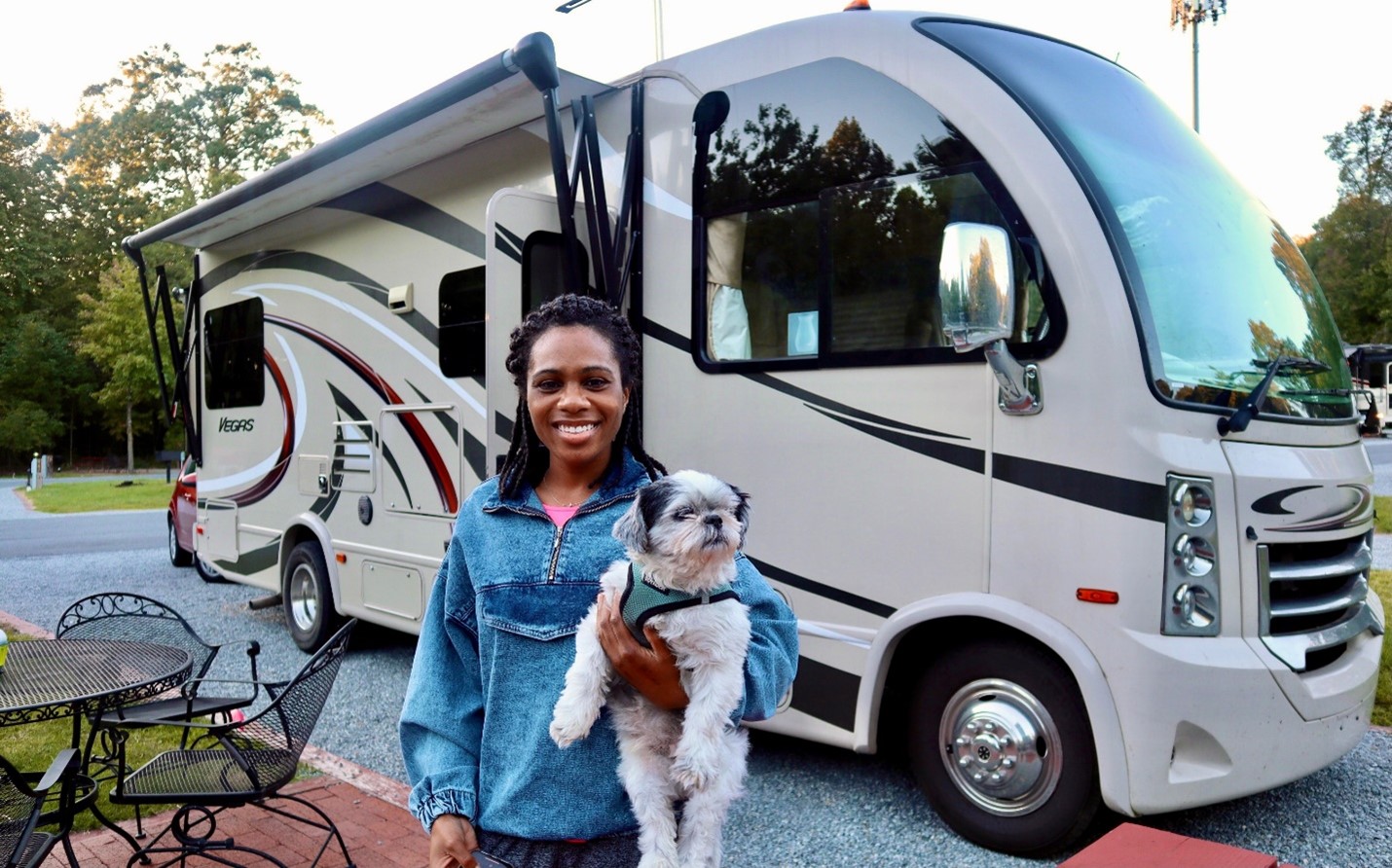 Jay Quinn of South Carolina was an ICU nurse in the Air Force prior to becoming a travel nurse two years ago. During an assignment in Texas, she found the RV she’d been looking for in Tennessee: a Thor Vegas Class A, whom she named “Marty.” She and Marty are currently based at an RV park in Reno, Nevada.
Jay Quinn of South Carolina was an ICU nurse in the Air Force prior to becoming a travel nurse two years ago. During an assignment in Texas, she found the RV she’d been looking for in Tennessee: a Thor Vegas Class A, whom she named “Marty.” She and Marty are currently based at an RV park in Reno, Nevada.
“I knew I wanted to be a travelling nurse,” said Quinn, who had gotten the RVing “bug” as a child camping in her parents’ travel trailer. “I wanted to explore America and I knew my job would be easier in an RV than in a series of hotels or Airbnbs.”
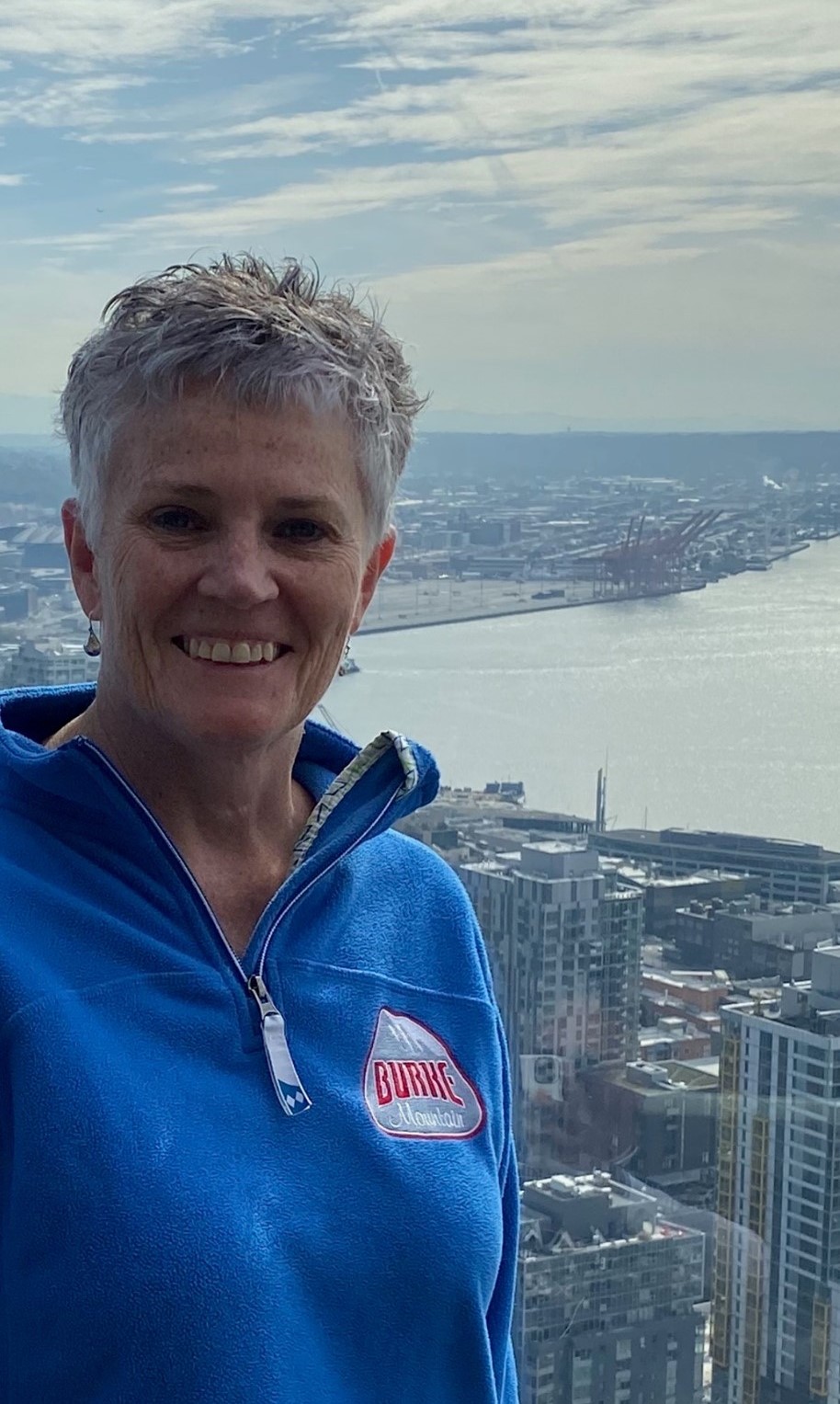 Katrina Wilson of San Diego has been a labor and delivery nurse for 20 years – the last six of them as a travel nurse. She began travelling after caring for her dying grandmother who made her promise to “do you” and see the country. Today, she, her truck, and her 30-foot fifth wheel (“Millie” and “Tillie,” respectively) are based at Yacht Haven Park & Marina in Ft. Lauderdale where she is one of 10 travel nurses at the waterside RV resort, which is located near nine busy hospitals. (Previously, during an assignment in Nashville, Wilson was among the 50% of travel nurses who were RVers.)
Katrina Wilson of San Diego has been a labor and delivery nurse for 20 years – the last six of them as a travel nurse. She began travelling after caring for her dying grandmother who made her promise to “do you” and see the country. Today, she, her truck, and her 30-foot fifth wheel (“Millie” and “Tillie,” respectively) are based at Yacht Haven Park & Marina in Ft. Lauderdale where she is one of 10 travel nurses at the waterside RV resort, which is located near nine busy hospitals. (Previously, during an assignment in Nashville, Wilson was among the 50% of travel nurses who were RVers.)
Changing cities, colleagues, schedules, and work environments every 13 weeks, Wilson finds comfort in knowing that at least her lodging is not foreign.
“I have my own belongings and my dog, and I’m surrounded by things that are important to me,” says Wilson. “And my RV has slides, so it feels like an apartment, not a box.”
There are significant financial benefits to being an RV travel nurse: the average rent for a one-bedroom apartment in America’s top 17 cities is above $2,500 per month, plus deposits, pet-fees, short-term rent penalties, and clean-up fees. Campgrounds are generally less expensive, although typically located in the surrounding suburbs. This enables nurses to pocket the difference from the tax-free lodging stipend they are provided by hospitals. For those who own a base home, interest on their RV loan is deductible on income tax as a second home.
Of course, there are expenses related to their RVs, e.g., gas and maintenance. Quinn, who learned basic repairs from her father and considers herself to be technically and mechanically inclined, watches YouTube videos when necessary and carries jumper cables and extra fuses. The only breakdown she’s experienced so far has been on the car she tows.
When she’s not working one of her three 12-hour shifts each week, Quinn enjoys crafting, exploring her surroundings, and participating in outdoor sports. Depending on her assignment and the time of year, she may pack skis, a snowboard, or a stand-up paddleboard.
“I have the luxury of deciding where I want to go,” said Quinn, who commands top “crisis” pay as an ICU nurse, often treating COVID patients. “I look at the Facebook group posts to see what’s popular and where the need is greatest.”
Interestingly, the rate of pay is often commensurate with desirability of the location. San Diego hospitals pay among the lowest rates because the city is such a popular location, while the state of Mississippi recently announced plans to raise their hospitals’ rates to attract travel nurses.
Wilson, who packs a kayak, rollerblades, a paddleboard, and a recumbent bike, decides on her assignment locations based on what the cities and their environments have to offer. Recently in Nashville, she was able to see the Country Music Hall of Fame, and prior to that, in Charlottesville, she hiked the Blue Ridge Mountains. She is drawn to cities, like Seattle, Jacksonville, and Charleston, where she has delivered as many as 1,000 babies in a month.
“True labor nurses like to be busy,” she says. “We like the excitement of delivery.”
As transient travel nurses, both Quinn and Wilson appreciate being excluded from the everyday hospital politics that entangle staff nurses.
“Not my circus, not my monkey!” laughs Wilson.
Midway through their 13-week assignments, both nurses start planning their next move. Immediately after identifying a potential position, they begin seeking a nearby campground, a task that has become far more challenging over the past two years.
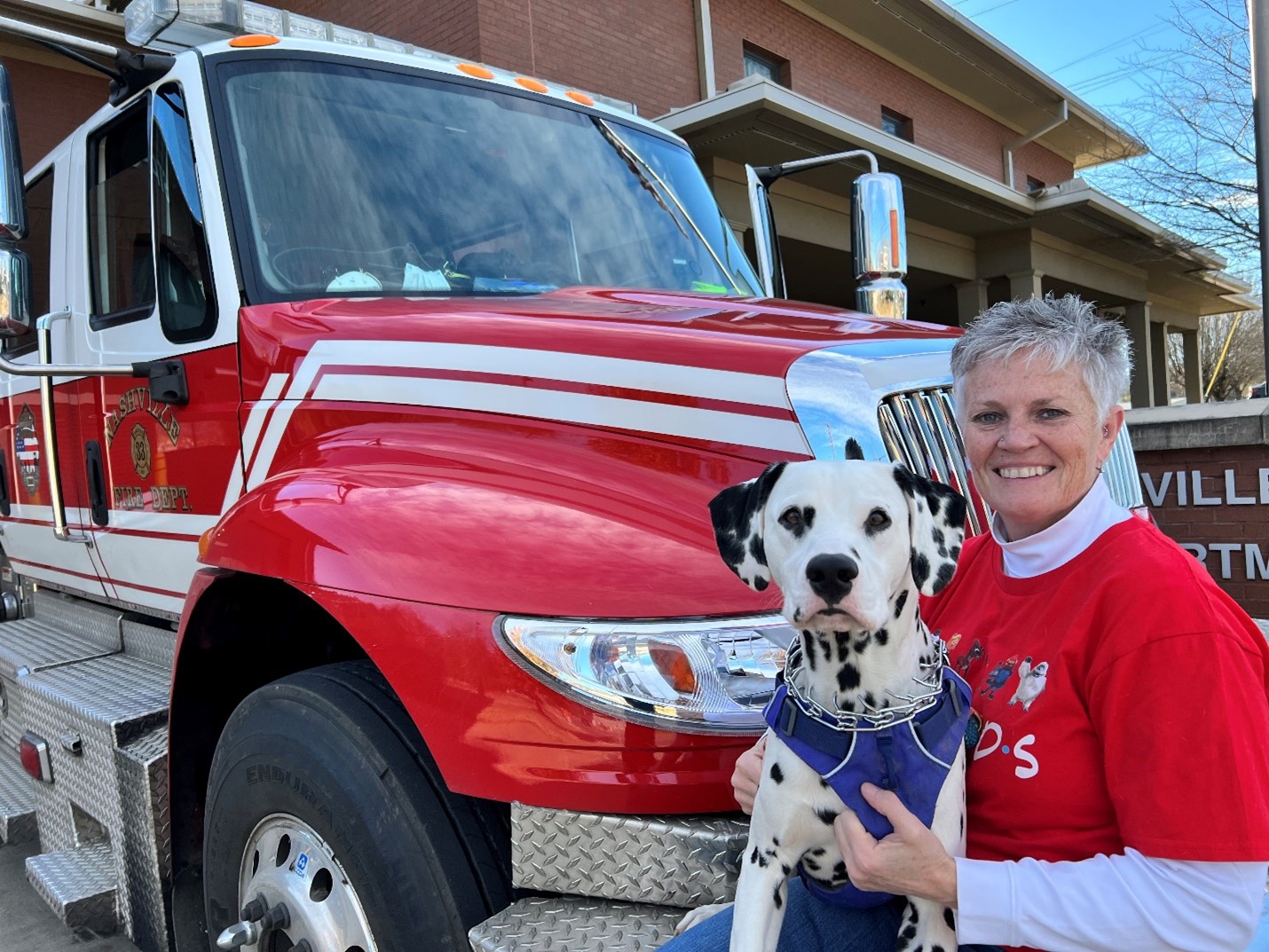 “Prior to COVID, parks were more eager to help nurses,” said Wilson. “Now, of course, there are a lot more people camping, so we’re lucky to find a site at all in popular areas and times of year.”
“Prior to COVID, parks were more eager to help nurses,” said Wilson. “Now, of course, there are a lot more people camping, so we’re lucky to find a site at all in popular areas and times of year.”
Travel nurses, especially those with pets, need to follow the temperate weather since their animals are often left in the RVs during the long shifts. That means competing with snowbirds in the winter months.
Safety is one of their primary concerns and they look for gated campgrounds that are well-maintained, well-lit, and have 24-hour security personnel onsite. While some travel nurses traverse the country with their spouses, many are single women who enter and exit the parks at odd hours. Quinn and Wilson both have dogs, a Shih-Tzu named Riley and a dalmatian named Jack, respectively, but they’re more for companionship than protection.
Despite these challenges, the opportunity to experience many parts of America and to earn a full year’s income in a few months will keep Quinn and Wilson working as RV travel nurses for the foreseeable future.
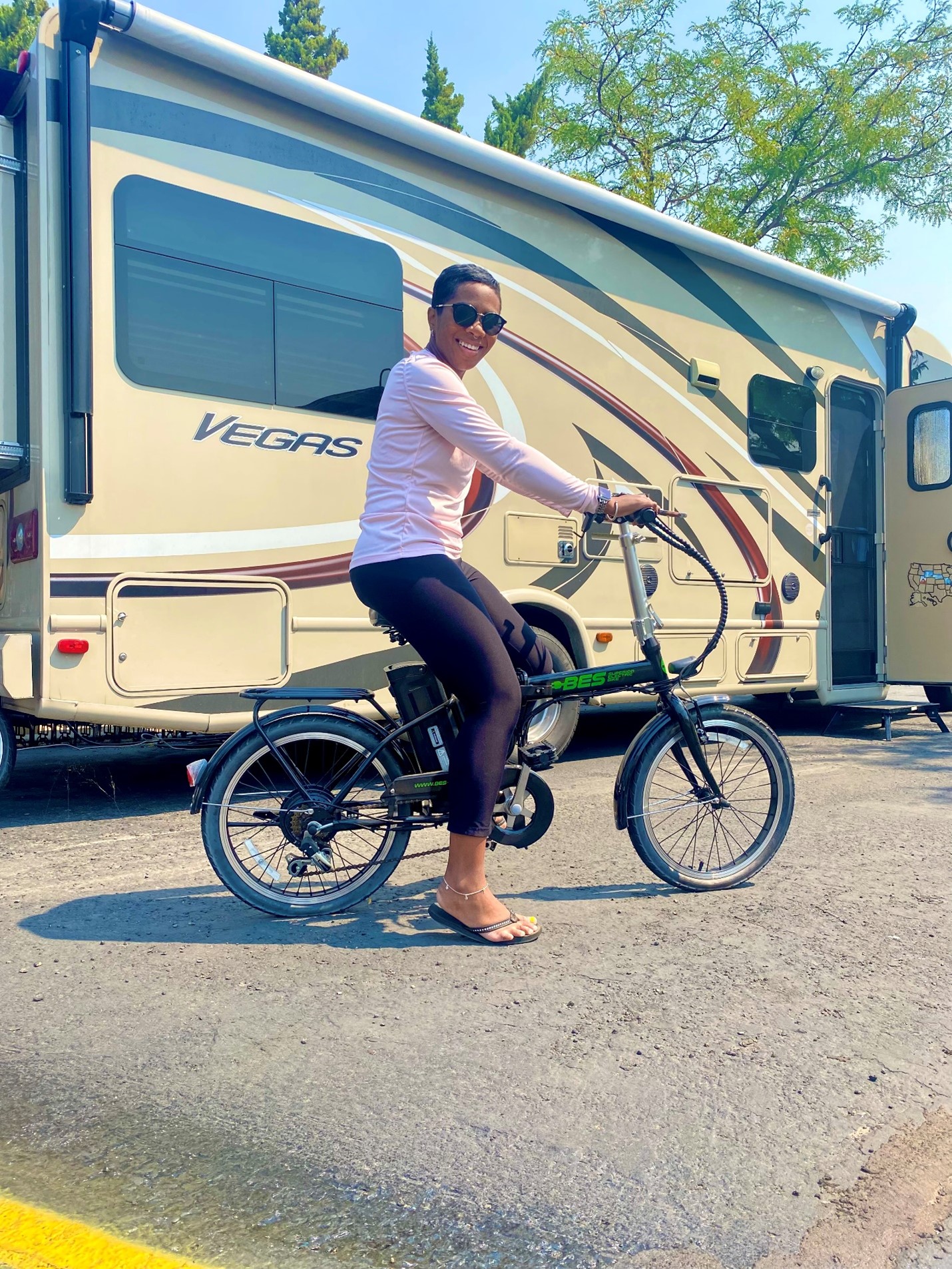 Quinn, who works six months out of the year and spends the remainder visiting family and friends, staying at her home in Clover, or preparing her container house in Charlotte for rental, is looking forward to adventure travel in the national parks and to learning about different cultures and foods around the country.
Quinn, who works six months out of the year and spends the remainder visiting family and friends, staying at her home in Clover, or preparing her container house in Charlotte for rental, is looking forward to adventure travel in the national parks and to learning about different cultures and foods around the country.
“This life isn’t for the faint of heart," says Wilson, a former Air Force brat who doesn’t mind constantly moving. "You have to be adaptable and get in there and land on your feet. When I find a reason to stop, I’ll stop.”
Please Sign in to View
Log in to view member-only content.
If you believe you are receiving this message in error contact us at memberservices@rvia.org.

